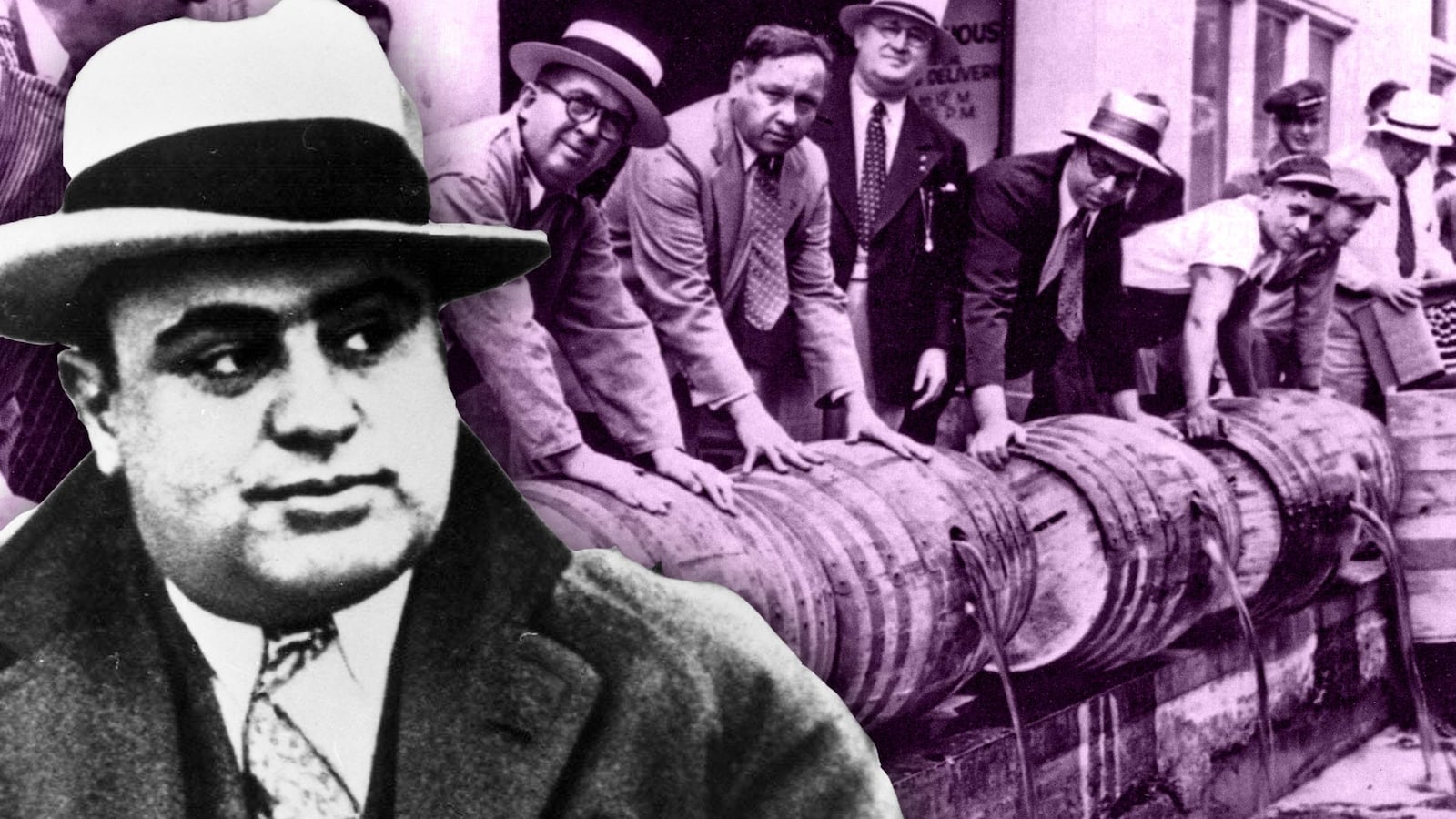Eighty-three years ago today, America woke up from a very bad dream—a nightmare filled with violence, corruption and toxic moonshine. At 5:31 pm, on December 5, 1933, Utah ratified the 21st Amendment to the Constitution to repeal Prohibition, which gave the wets the majority they needed to make the production, transportation and sale of alcohol legal again.
Interestingly enough, it’s hard to talk about Prohibition and not mention crime boss Al “Scarface” Capone. While he passed away nearly 70 years ago, his face and legacy seem to perennially haunt America’s liquor business. The current fascination with moonshine and trendy speakeasy-style bars must rankle the ghosts of Wayne Wheeler, Carrie Nation and the rest of the ardent Prohibitionists.
The scrappy mobster was raised in Brooklyn, but made a name for himself in Chicago. What solidified his reputation—and attracted the attention of hordes of newspaper reporters that followed his every move—was his gang’s notorious ruthlessness and extreme violence. “Head of the cruelest cutthroats in American history, he inspired gang wars in which more than 300 men died by the knife, the shotgun, the tommy gun and the pineapple, the gangster adaptation of the World War I hand grenade,” wrote the New York Times in his January, 1947, obituary. Quite a feat given that there were plenty of other psychopaths selling purloined alcohol during Prohibition. But it was Capone who was able to rise to the top and whose life story was first told in a 1959 movie starring Rod Steiger and then again in a 1975 film, this time starring Ben Gazzara.
While Capone’s legend is more than familiar to most, award-winning biographer Deirdre Bair was able to turn up fresh stories about him for her book Al Capone: His Life, Legacy, and Legend, which was just published. That was in great part due to her being able to track down a web of his family members for interviews. While it sounds like a fairly straightforward task, many of his relatives and descendants took new last names after the Capone moniker because synonymous with crime and the mob. (Who could blame them?)
Under Bair’s careful inspection, Capone is presented as not just a thug bootlegger, but the leader of a sophisticated and terrifying organization whose techniques piqued endless curiosities and were even the subject of a Harvard Business School study. Amazingly enough, his reign as crime boss lasted just five years, but “here we are 80 years later and his name is recognizable around the world and everyone is so intrigued by him,” says Bair. Without Prohibition, she believes Capone would have never achieved his notoriety. The temperance movement inadvertently made him a hero.
As it turns out, alcohol wasn’t just a vocation, but a real love of Capone’s. Bair chronicles his massive consumption of liquor in her book, but is quick to point out that it was always done when he knew he was safe. “He only drank to abandon when he was in one of another of his hideouts, surrounded by devoted attendants and, most particularly, his brother Ralph, who could always be counted on to keep him safe,” she writes.

He, of course, took great pains to protect himself from inevitable attacks from rival gangs and the government, including sitting in a chair with a bullet-proof back. He was also wise enough to gird himself against catty social attacks and knew that no matter how wealthy he became most of his fancy customers had no intention of allowing him to become part of proper Chicago society. It was said that he used to joke, “When I sell liquor, they call it bootlegging. When my patrons serve it on silver trays on Lake Shore Drive, they call it hospitality.”
His taste for alcohol was beyond doubt, but there are also persistent rumors of his excessive drug use. However, Bair found no evidence of this in her research. In fact, she argues that Capone purposely stayed away from narcotics, since he feared losing control and endangering himself. “He felt they were so destructive,” she says. So much so that he didn’t even want to sell drugs, preferring alcohol, gambling and prostitutes instead, since, according to Bair, he wanted to provide entertainment that made people happy.
The government went to great pains to lock Capone up and finally was able to make a charge of tax evasion stick. The irony? He entered an Atlanta jail on May 5, 1932, 19 months to the day before Prohibition was officially repealed—which would have, of course, put him out of the bootlegging business.






